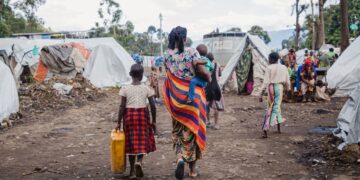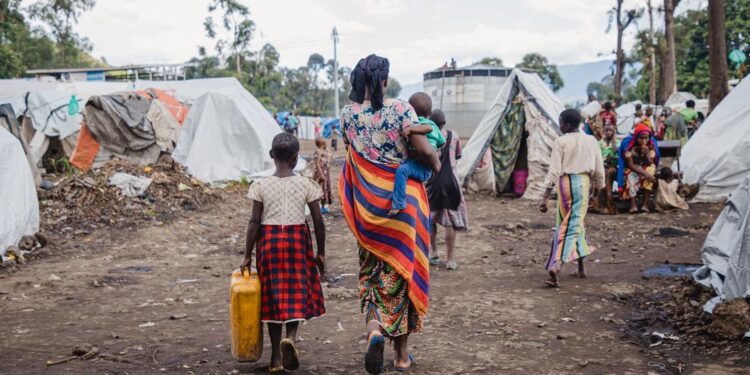ActionAid has sounded the alarm over a shocking surge in sexual violence against women and girls in eastern Democratic Republic of Congo (DRC), with reported cases rising by nearly 700% in March 2025 alone as armed conflict escalates in the region.
Between March and April, ActionAid’s protection teams recorded 381 cases of sexual violence in the provinces of North and South Kivu — nearly half the total number of cases reported throughout the whole of 2024. 247 cases were documented in March alone, compared to just 32 in February.
“These numbers are horrifying, but they barely scratch the surface,” said Saani Yakuba, ActionAid DRC Country Director. “Many women and girls are too afraid or traumatised to come forward. The true scale of this violence is much greater.”
ActionAid warned that sexual violence is being used systematically as a weapon of war, as conflict continues to displace communities and destabilise the region. Reports of forced and early marriage have also spiked, with 58 cases recorded between January and April — already 86% of the entire 2024 total.
An ActionAid team member in North Kivu shared: “Rape and sexual violence are daily terrors. Many survivors remain silent due to fear of stigma. We know we are only seeing a fraction of the reality.”
Over 2.7 million people are currently displaced in North Kivu, many of them forced into overcrowded camps near Goma. The destruction of these camps by armed groups has put women and girls at heightened risk, with many being returned to conflict zones where they face sexual violence and coercion.
Yakuba emphasised the urgent need for global attention and intervention: “Despite two ceasefire attempts, the fighting continues. The international community must push for a permanent ceasefire and ensure the withdrawal of armed groups from populated areas like Kashebere and Goma.”
ActionAid continues to respond with emergency support, providing mental health services, shelter, and cash assistance to survivors, and calls for increased international action to protect civilians, especially women and girls, from further atrocities.











